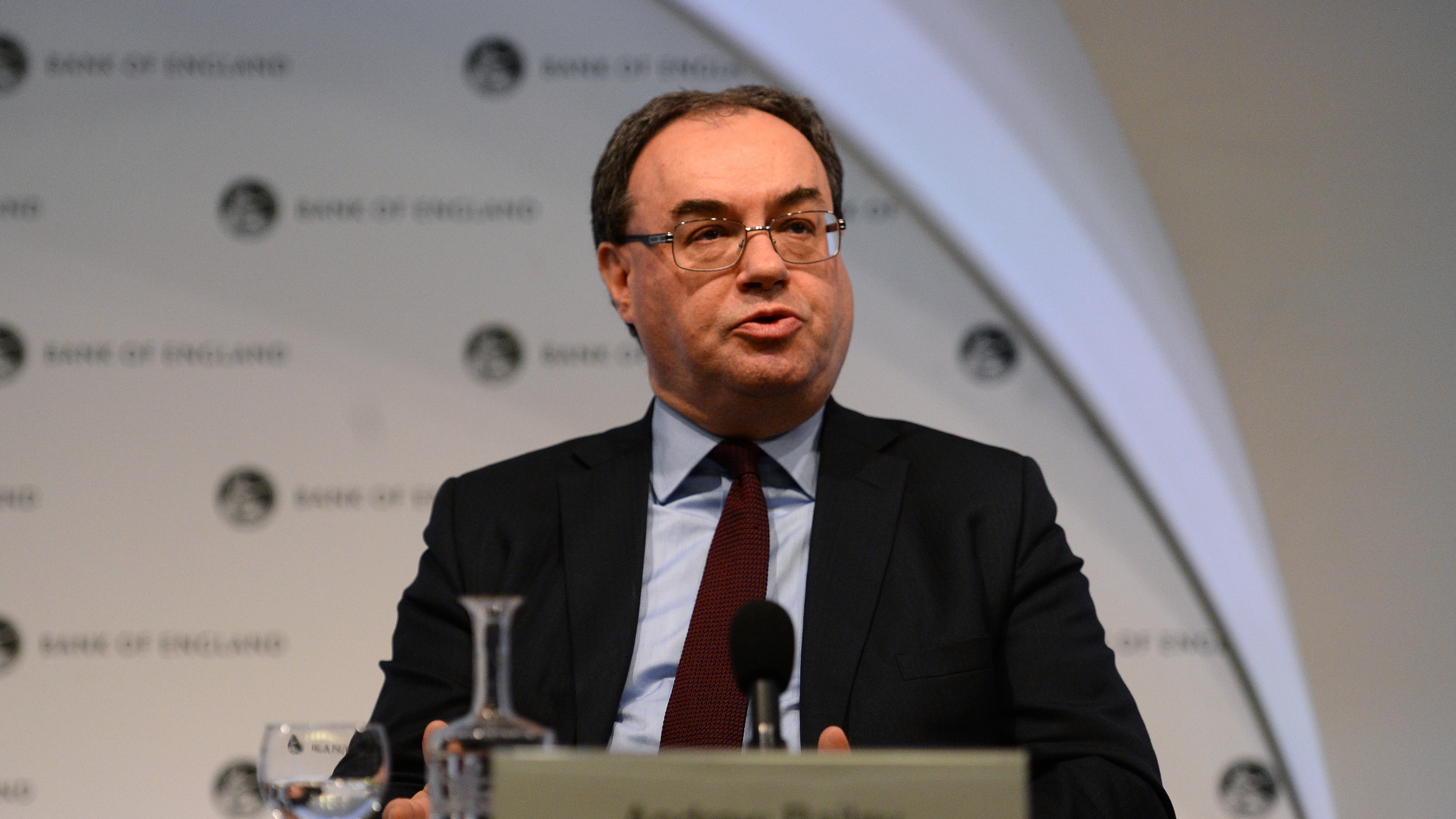Andrew Bailey: who is the new Bank of England governor?
Financial Conduct Authority chief faces questions from Treasury Select Committee

A free daily email with the biggest news stories of the day – and the best features from TheWeek.com
You are now subscribed
Your newsletter sign-up was successful
The Bank of England's next governor Andrew Bailey is facing a grilling by the Treasury Select Committee over his impending ascension to the role later this month.
The meeting comes after lawyer Gina Miller called on Chancellor Rishi Sunak to launch an independent review into Bailey’s tenure as CEO of the Financial Conduct Authority (FCA) ahead of his appointment to the BoE.
Miller alleges that his time at the FCA was characterised by a “toxic cocktail of negligence, incompetence and indifference” that allowed a string of financial scandals to go unchecked, wiping out the savings of small investors, The Guardian reports.
The Week
Escape your echo chamber. Get the facts behind the news, plus analysis from multiple perspectives.

Sign up for The Week's Free Newsletters
From our morning news briefing to a weekly Good News Newsletter, get the best of The Week delivered directly to your inbox.
From our morning news briefing to a weekly Good News Newsletter, get the best of The Week delivered directly to your inbox.
The FCA has said it “utterly” rejects the claims, which it says contains “numerous inaccuracies and are made with little understanding of the role of the FCA”.
He will replace Mark Carney on 16 March.
Who is Andrew Bailey?
Bailey spent the vast majority of his career at the Bank of England, which he joined in 1985, but is currently the chief executive of the Financial Conduct Authority (FCA), the City watchdog.
A free daily email with the biggest news stories of the day – and the best features from TheWeek.com
He was chief cashier at the Bank of England during the financial crisis when, he told the Financial Times: “The [RBS] treasurer, John Cummins, came in and I thought he was going to have a heart attack... and he looked at me and said: ‘I need £25bn today, can you do it?’ I said: ‘Yes, I can do that.’”
Bailey has also been deputy governor and was head of the Bank’s prudential regulation division, before leaving to join the FCA as its chief executive in 2016.
He is highly thought of by colleagues and civil servants, says the BBC’s business editor Simon Jack, and will be paid £495,000 a year in the role.
Announcing the appointment, then-chancellor Sajid Javid said Bailey was “the stand-out candidate in a competitive field”.
“He is the right person to lead the Bank as we forge a new future outside the EU and level-up opportunity across the country,” he added.
But the FCA has been criticised in recent months over its regulatory scrutiny of the fund managed by the disgraced Neil Woodford, says the BBC. The fund was suspended in June and eventually closed, meaning investors are likely to lose considerable sums of money.
And an FCA report into the Royal Bank of Scotland’s treatment of small businesses was called a “whitewash” by MPs after it recommended taking no further action against the bank, despite RBS allegedly engineering defaults on loans so that it could acquire business’s property, says The Independent.
–––––––––––––––––––––––––––––––For a round-up of the most important stories from around the world - and a concise, refreshing and balanced take on the week’s news agenda - try The Week magazine. Start your trial subscription today –––––––––––––––––––––––––––––––
What challenges will he face as governor?
According to City A.M., Bailey will face a number of issues as he takes the role. First off, he is likely to be pressured to “maintain Threadneedle Street’s concern with climate change” after more than 101 economists, scientists and industry leaders penned a letter to him.
The paper adds that the BoE has “earned international plaudits for its approach to climate change under current governor Mark Carney, who has warned that the financial sector’s investments are currently not consistent with stopping global temperatures rising 2C” - a path Bailey will have to follow Carney down.
And he will have to deal with calls for a regulatory shake-up aimed at stopping investors withdrawing their money from funds instantly, after high-profile funds got into trouble last year because of high demand for withdrawal.
The new governor will also need to address criticism of a lack of diversity at the Bank. Only one of its nine-member rate-setting committee is a woman – Silvana Tenreyro – and Carney’s four deputy governors are all white, middle-aged men. There has never been a female governor of the Bank of England in its 325-year history.
On top of this, Bailey will need to take steps to handle the continued reliance on the London Interbank Offered Rate (Libor), the interest rate used between banks and the benchmark for lending rates on financial contracts, that is being phased out by the end of 2021.